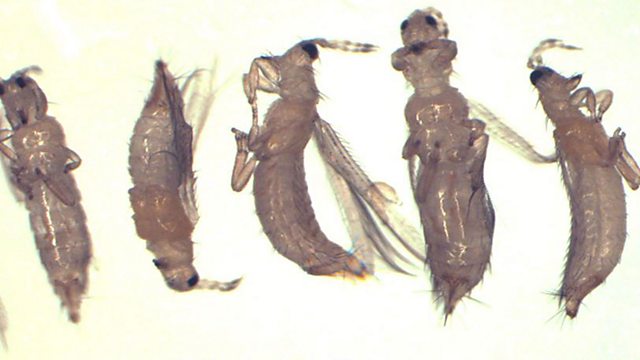Hacking Zika Transmission
Hacking Zika transmission; The Earth’s rarest minerals; Gorillas hum while eating; The fireball nobody saw; Fast radio burst; Robot stands up to bullies; Cockroach-inspired robot
The Zika virus continues to be a global health concern and research is underway to find means to control mosquito populations – the main mode of transmission for the disease. Scientists have now developed a way of controlling insect populations that could also be used to tackle Zika. Using bacteria that have co-evolved with disease-bearing insects over thousands of years, researchers have managed to reduce insect fertility and even kill larvae. The technique used microbes found in the insect’s gut as a kind of Trojan horse, introducing RNA molecules into the animal which in turn switch off certain genes – in this case either those associated with fertility or with growth in larvae. Unlike chemical pesticides, this approach does not cause environmental damage, health risks to humans and insects do not develop resistance. Professor Paul Dyson from the University of Swansea is one of the lead authors of the study and has just returned from Brazil.
The Earth’s Rarest Minerals
More than half of all known mineral species are found in no more than five places on Earth. The global supply of many of these minerals would fit on the tip of a finger. Acetamite, fingerite and swedenborgite are just a few of the minerals that have just been categorised in a paper about to be published in the journal American Mineralogist. While they make up a very small portion of the Earth’s mass, the authors claim that rare minerals can tell us a lot about the construction of our planet. 91�ȱ� Science Correspondent John Amos has spoken to Dr Robert Hazen, one of the authors of the paper who also had a mineral named after him.
Gorillas Hum While Eating
The great apes have been found to sing or hum while they eat. This may be an expression of them enjoying their food – especially in adult males.
The Fireball Nobody Saw
The biggest space rock since the explosion near Chelyabinsk in 2013 has burned up over the Atlantic on 6 February, releasing energy equivalent to 13,000 tonnes of TNT.
Fast Radio Burst
Scientists have tracked a ‘fast radio burst’ back to its source. What causes the flashes of radio waves is unknown – but this particular one came from a galaxy six billion light-years away.
Humanoid Robot Stands Up To Bullies
Robotics company Boston Dynamics has released a new improved version of the Atlas robot. It can walk in the snow, lift boxes and will not be deterred by human bullies.
Cockroaches Inspire Search and Rescue Robot
Cockroaches are not the most popular of insects and most people prefer not seeing them scuttling around their homes. However, the way they scuttle makes them extremely interesting for science. Researchers at Berkeley University have been studying the way cockroaches run, jump, crawl and slither for decades and found that the bugs can run at speeds 50 times their body length per second. New research now shows how American cockroaches manage to compress their bodies and squeeze through horizontal crevices that are a fraction of their usual standing height. Professor Robert Full tells us how a soft, legged robot inspired by the creepy-crawlies might help locate earthquake survivors trapped in rubble.
(Photo: Western flower Thrips © Dr Miranda Whitten, Swansea University)
Last on
More episodes
Broadcasts
- Thu 25 Feb 2016 20:32GMT91�ȱ� World Service Americas and the Caribbean, Online, UK DAB/Freeview & Europe and the Middle East only
- Thu 25 Feb 2016 21:32GMT91�ȱ� World Service Australasia, South Asia, East Asia & West and Central Africa only
- Fri 26 Feb 2016 02:32GMT91�ȱ� World Service Americas and the Caribbean
- Fri 26 Feb 2016 03:32GMT91�ȱ� World Service Online, East Asia, UK DAB/Freeview & Europe and the Middle East only
- Fri 26 Feb 2016 04:32GMT91�ȱ� World Service South Asia
- Fri 26 Feb 2016 05:32GMT91�ȱ� World Service Australasia
- Fri 26 Feb 2016 07:32GMT91�ȱ� World Service Europe and the Middle East & East and Southern Africa only
- Fri 26 Feb 2016 13:32GMT91�ȱ� World Service Online
- Fri 26 Feb 2016 14:32GMT91�ȱ� World Service East and Southern Africa, Europe and the Middle East, South Asia, East Asia & West and Central Africa only
Podcast
-
![]()
Science In Action
The 91�ȱ� brings you all the week's science news.


